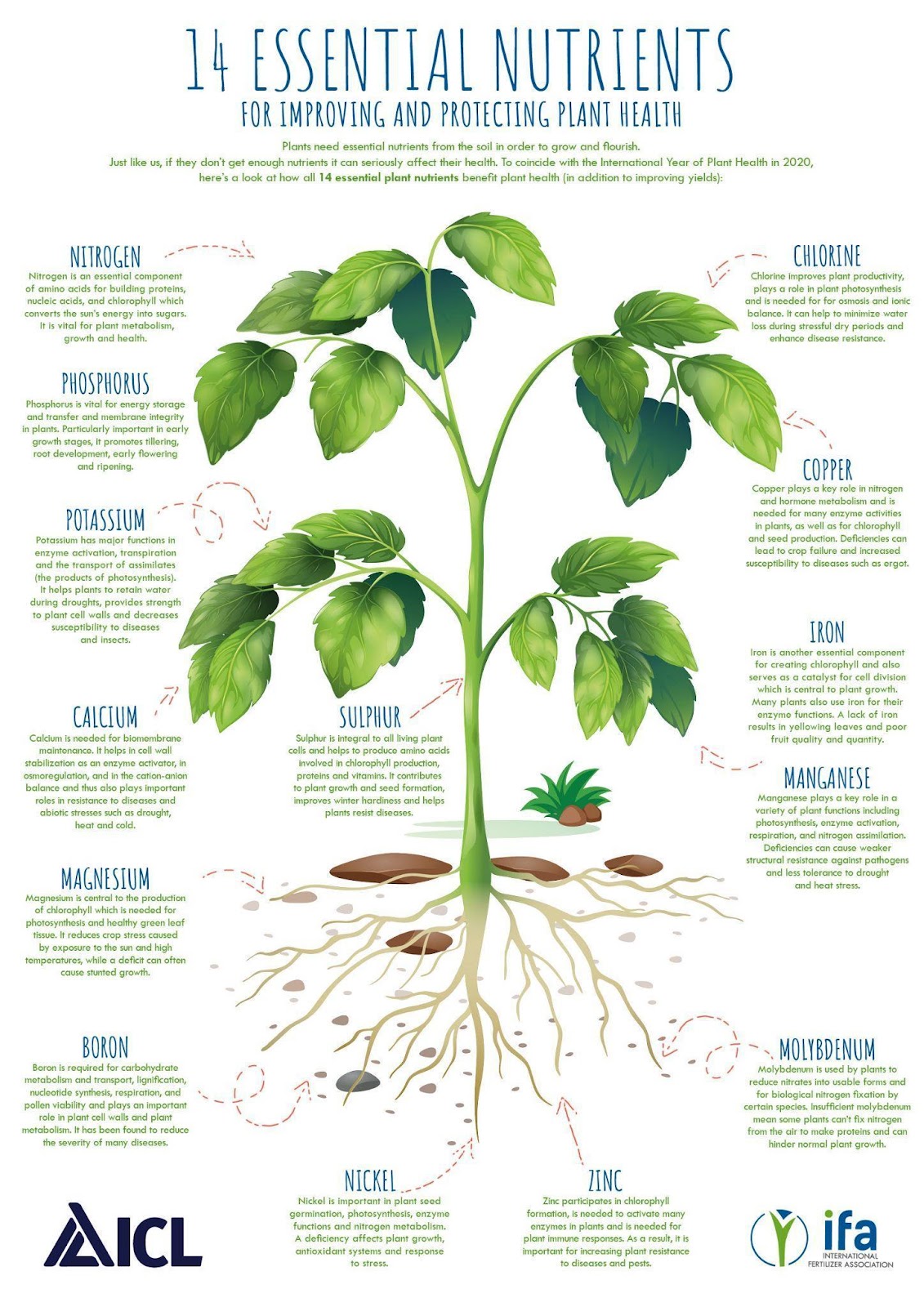Essential Nutrients
Plants require 17 essential nutrients for growth: carbon (C), hydrogen (H), oxygen (O), nitrogen (N), phosphorus (P), potassium (K), sulfur (S), calcium (Ca), magnesium (Mg), boron (B), chlorine (Cl), copper (Cu), iron (Fe), manganese (Mn), molybdenum (Mo), nickel (Ni), and zinc (Zn).
Carbon, hydrogen, and oxygen are supplied by air and water. The six macronutrients– nitrogen, phosphorus, potassium, calcium, magnesium, and sulfur– are required by plants in large amounts. The rest of the elements are required in trace amounts and are known as micronutrients.
These nutrients are essential for healthy plant growth. Specifically, plants need them to complete their life cycle, i.e., for seeds to germinate and for roots, stems, leaves, and flowers to develop.
These essential plant nutrients provided by mineral fertilizers are estimated to produce 50% of the food grown today. With an expected 50-100% increase in food demand by 2050, fertilizers will be vital for ensuring food security. Norman Borlaug, winner of the 1970 Nobel Peace Prize, has stated that without the use of fertilizers, only half the population of the world would get proper nourishment. In other words, without fertilization we could all go hungry.
Nutrients in soil are taken up by the plants' roots and removed with harvests of crops. The nutrients' levels in soil are thus depleted and there is nutrient mining from soil reserves. Therefore, nutrients must be replenished to the soil through fertilization. Farmers are not just adding fertilizers to the soil, they are replacing nutrients that are removed at each harvest
Each nutrient must be provided in its proper amount: too much manganese, for example, can cause the leaves to turn yellow and die; too much nitrogen can result in more leaves, but less fruit.
Plant nutrients should be provided in an optimum ratio and adequate amounts. This is called “Balanced Fertilization”. Continuously imbalanced fertilization (i.e., too much nitrogen and no potassium) causes depletion in soil fertility, a decrease in crop yields, poor crop quality, and diminishing profits.
Organic manure contains small amounts of N, P, and K nutrients and cannot supply alone all the nutrients needed by the crops. The application of organic manure in balanced fertilization is very valuable due to micronutrient supply and improvement of the soil quality by enhancing microbiological activity and physical properties (structure, water-holding, aeration). The best results are obtained when commercial fertilizers are applied in combination with organic manures. This is called Integrated Nutrient Management (INM).
ICL, as a leading fertilizer producer, encourages more precise, judicious and balanced fertilizer use by farmers in order to increase the quality of produce and boost economic profitability while keeping the environment safe.





